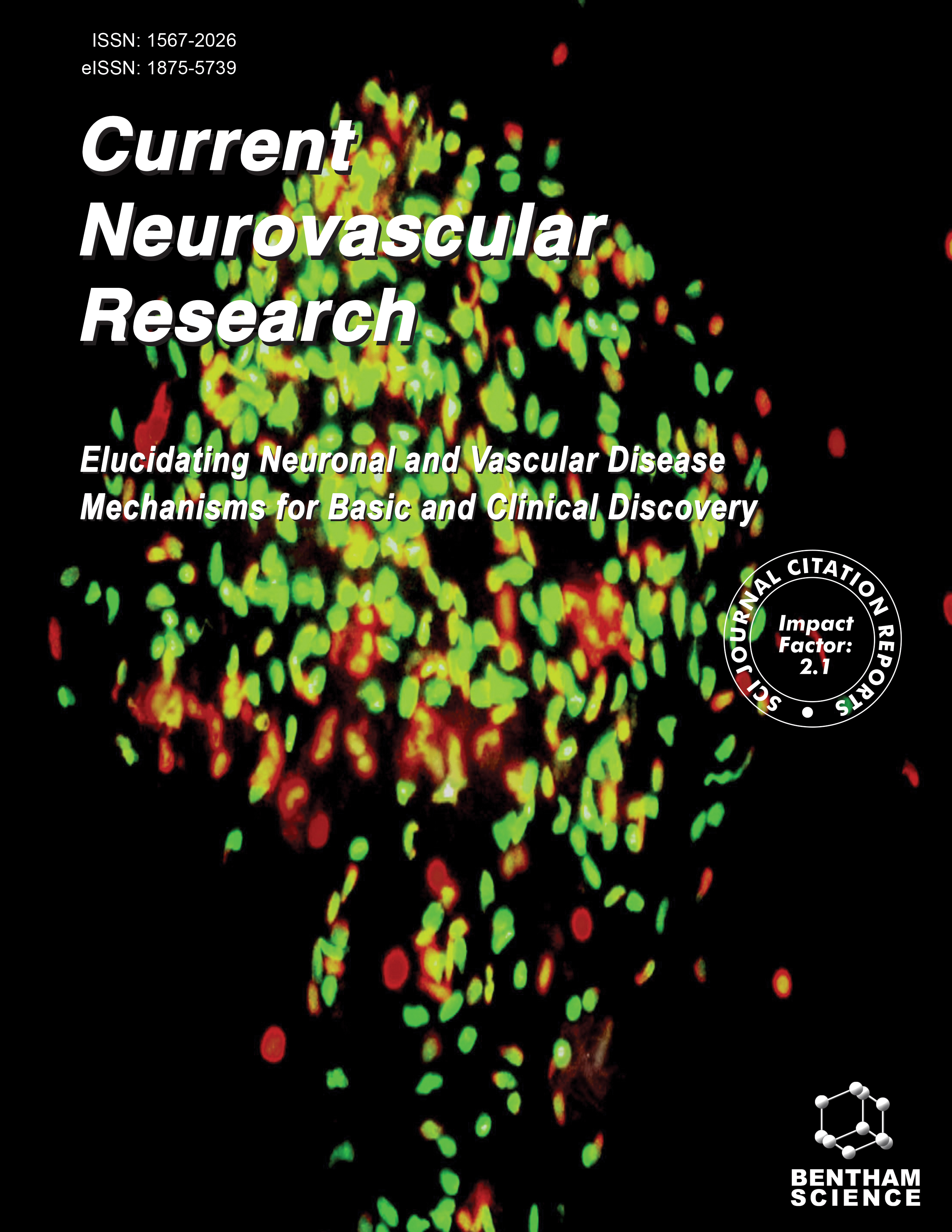-
oa Increased Neuronal Injury in Transgenic Mice with Neuronal Overexpression of Human Cyclooxygenase-2 is reversed by Hypothermia and Rofecoxib Treatment
- Source: Current Neurovascular Research, Volume 4, Issue 4, Nov 2007, p. 274 - 279
-
- 01 Nov 2007
Abstract
Cyclooxygenase-2 (COX-2) is up-regulated during ischemia. However, the role of COX-2 in neuronal injury is still unclear. In this study we tested whether neuronal overexpression of human COX-2 in a transgenic mouse model potentiates neuronal injury after global ischemic insult. Further, we tested whether the neuronal injury could be ameliorated by intra-ischemic mild hypothermia (33- 34°C) alone or in combination with diet treatment of rofecoxib, a COX-2 specific inhibitor. Global ischemia with intra-ischemic normothermia (36-37°C) resulted in significantly higher neuronal damage in the CA1 region of hippocampus of transgenic mice than in wild type controls, confirming a deleterious role of COX-2 in ischemic neuronal damage. Hypothermia significantly reduced neuronal damage in both transgenic mice and wild type controls to the same extent, suggesting that the aggravating effect of COX-2 could be largely eliminated by hypothermia. When hypothermia was combined with rofecoxib treatment, neuronal damage was further reduced in response to global ischemia. The results suggest that COX-2 inhibition by prophylactic treatment with rofecoxib coupled with hypothermia at the time of acute stroke insult could be an effective therapeutic approach in early stages of stroke treatment in high risk patients.


